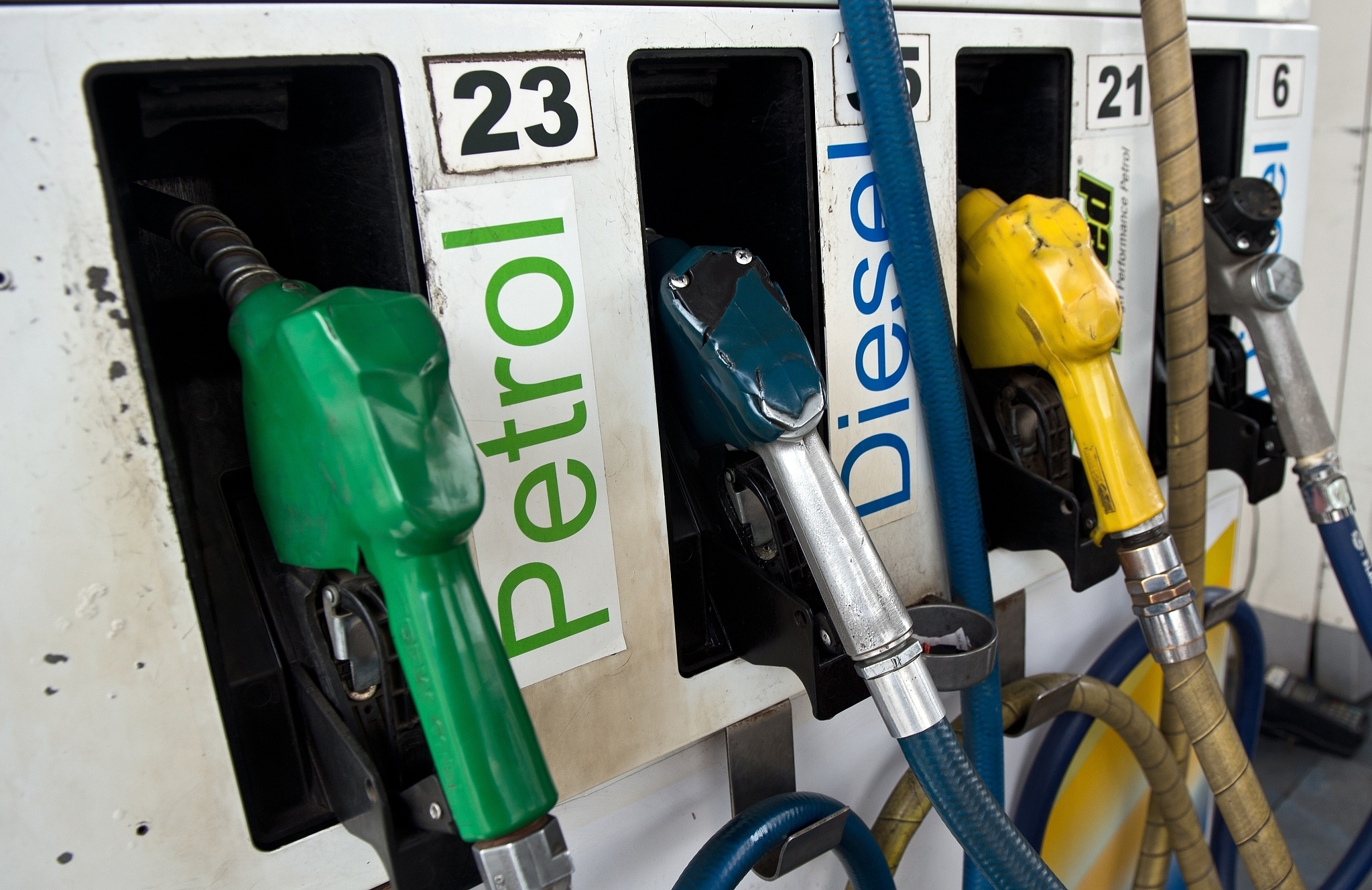Economy
How China-US Trade War Can Provide Relief From High Petrol, Diesel Prices
- The China-US trade war can affect global economic growth and thus affect demand for crude oil.
- Indiscipline on the part of OPEC members can lead to a rise in crude oil output, increasing supply.

A Petrol Pump (PRAKASH SINGH/AFP/Getty Images)
Congress president Rahul Gandhi trolled Prime Minister Narendra Modi on rising prices of petrol and diesel. Some economists have triggered fears of inflation. In its macroeconomic outlook as part of the Monetary Policy, the Reserve Bank of India has said that if crude oil prices climb to $78 a barrel, there could be a 30 basis points higher inflation over the baseline projection of 4.4 per cent during the current fiscal.
But there are signs that prices of diesel and petrol, which hit a record high this week in India, could be headed south soon. Two reasons are being attributed to a likely fall in crude oil prices. One is crude oil production could increase from the second half of this calendar year. Two, the China-US trade war will likely affect demand growth for petroleum products.
According to British investment bank Barclays, compliance of the oil cartel Organisation of Petroleum Exporting Countries (OPEC) will drop, leading to an increase in the production. The bank’s New York analyst Mike Cohen said the higher the prices during April-June ahead of the OPEC meeting, the more likely are chances of change in quotas.
In March, OPEC produced 32.19 million barrels a day (bpd), a drop of 90,000 BPD from February. The cartel has decided to cut its production by 1.2 million bpd as part of a deal struck with Russia and other non-OPEC members. The deal, which took effect in January 2017, ends this December.
Oil outlook in the US continues to improve and this could result in the West Texas Intermediate (WTI) crude to drop to $58 in the second quarter and further to $51 for the remainder of the year. Benchmark Brent crude will likely fall from $62 to $57 by the year-end.
Currently, WTI crude is quoted at $63.10 a barrel and Brent at $67.94. During the weekend, Brent touched $70 a barrel on drop in stocks. However, the British investment bank sees the downside limited for crude oil, though the market balance could swing towards a surplus.
On the other hand, the trade war between the US and China looks to escalate with President Donald Trump asking his officials to identify commodities to slap $100 billion worth of tariff on Chinese products. On Tuesday, the United States Trade Representative recommended 25 per cent tariff on 1,300 Chinese products, ranging from televisions to electronics and industrial.
On Wednesday, China targeted $50 billion worth of US products for 25 per cent tariff with pork, wine and soybean being prime among the targets.
The trade dispute began with the Trump administration imposing a 10 per cent duty on steel imports and 25 per cent tariff on aluminium imports into US. This was followed by the US President saying he would target China primarily for theft of his country’s intellectual property.
According to analysts, the weakness witnessed in crude oil this week can be attributed to fears of a trade war. In the event of a trade dispute, the way China and the US threaten, economic growth could go for a toss and affect global economy.
Bloomberg quoted Michael Loewen, a commodities strategist at Scotiabank in Toronta: “The retaliation from China is concerning for energy markets. If a trade war occurs between these countries and it affects demand growth from emerging markets, that could be a big problem.”
Crude prices could head lower as speculators have taken a record bullish position on oil futures. Hedge funds and other money managers have bet on a rise in crude oil prices. A record 5,95,596 bets on prices heading north have been made, which could expose the commodity to a correction in case of a bearish sentiment.
According to Reuters, bets on oil price rising outnumber bets on a bearish outlook 12:1, which make crude oil vulnerable to a fall in the event of any negative development. The agency quoted Greg McKenna, chief market strategist at AxiTrader, as saying that Russia’s increase in production is one event that can spoil the bulls’ party.
Nick Cunningham wrote in Oilprice.com pointed out that in the past several years, whenever investors built up positions in the futures market and stretch it far, they tend to rush back in the other direction at the first sign of trouble. In January, when Brent crude rose to $70 a barrel, volatility in the financial market led to a fall in prices.
The Chinese reaction after the latest announcement from Washington is keeping the markets nervous and that dampened sentiments as the markets headed for the weekend closure.
Support Swarajya's 50 Ground Reports Project & Sponsor A Story
Every general election Swarajya does a 50 ground reports project.
Aimed only at serious readers and those who appreciate the nuances of political undercurrents, the project provides a sense of India's electoral landscape. As you know, these reports are produced after considerable investment of travel, time and effort on the ground.
This time too we've kicked off the project in style and have covered over 30 constituencies already. If you're someone who appreciates such work and have enjoyed our coverage please consider sponsoring a ground report for just Rs 2999 to Rs 19,999 - it goes a long way in helping us produce more quality reportage.
You can also back this project by becoming a subscriber for as little as Rs 999 - so do click on this links and choose a plan that suits you and back us.
Click below to contribute.
Latest